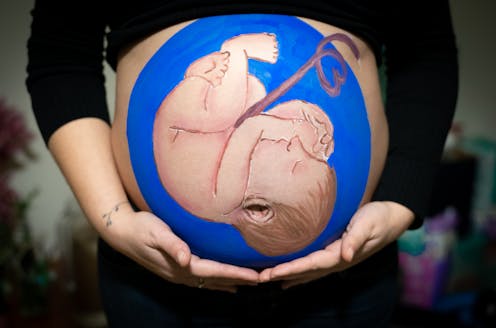NZ needs a 300% increase in qualified midwives – and those working need more support and recognition
- Written by James Greenslade-Yeats, Research Fellow in Management, Auckland University of Technology

New Zealand’s understaffed and underfunded midwifery sector is hoping to benefit from increased health funding announced in the 2024 budget. The government has promised NZ$8.15 billion in additional operating capital for the health system, with $3.44 billion earmarked for hospital and speciality services and $2.12 billion for primary care and public health.
So far, the exact amount earmarked for midwives is unclear. But it urgently needs to be sufficient, given the state of the profession.
There are currently around 3,300 midwives registered in New Zealand. Of these, 33% work in the community under a caseload model (working independently and on-call), while 47% work in hospitals and other facilities on rostered shifts. Approximately 95% of births have a midwife as the lead maternity carer.
Despite it’s role in the health system, midwifery is currently understaffed by 40%. Making matters worse, many midwives are nearing retirement age. There is also a high attrition rate among both recently qualified midwives and students.
To cover the current staffing shortfall, the number of midwives who qualify each year needs to increase by 300%. But 42% of student midwives never complete their qualification, often because they can’t afford to. Some reports suggest student midwives feel like they’re being used as unpaid labour to plug holes in the workforce.
What really affects midwives
Our ongoing research aims to understand midwives’ physical and mental health – and how structural elements of the profession can have a detrimental effect.
One key factor affecting recognition and funding is the profession’s uniquely gendered structure. In 2023, only eight midwives in Aotearoa identified as male and five as gender diverse. The predominance of women has been linked to a lack of professional recognition.
Historically, “women’s work” in healthcare has been equated with a “labour of love” — something done for intrinsic rewards rather than pay and other forms of external recognition.
COVID-19 and midwifery
Further research during COVID-19 highlighted the importance of these factors. At the end of 2020, we surveyed 215 registered midwives about how working through lockdowns influenced their physical and mental health.
We found midwives’ individual health was inextricably linked to their profession’s place in wider society. Midwives felt they were fulfilling a duty towards society by working through the pandemic.
They felt it was important they were acknowledged and valued for their work. When they experienced such acknowledgement, midwives said they had the energy and courage to keep working through trying circumstances.
However, midwives all too often felt their work was undervalued and poorly supported. As one participant said:
I felt frustrated and totally undervalued by New Zealand when all I heard on the news and in the media was about how hard the GPs were working doing virtual visits, and how Plunket had to change the way they worked by doing virtual visits, but no mention of the frontline midwives who were out doing the visits and seeing the women, attending labours, [conducting] urgent assessments and additional postnatal visits because everyone else had stopped.
Midwives also felt their professional invisibility was a key reason they lacked support from healthcare bodies, especially with personal protective equipment (PPE) provision. As another midwife explained:
The lack of PPE available was very concerning. We realised midwives are at the bottom of the pile for considerations, unseen by the govt and the public. Supermarket workers had better PPE and support.
This lack of support seriously threatened midwives’ health and safety, not to mention that of their families.
As one midwife explained:
At the time I was pregnant and was terrified. I had suffered several miscarriages in the past and was finally holding my pregnancy only to have COVID come along. I felt that I was putting myself in danger and felt forced to do so to provide care to other pregnant women.
Critically, midwives’ perceptions of professional invisibility were not unique to the pandemic. COVID-19 merely heightened their sense of being undervalued.
Another midwife told us:
I think most people take our role for granted at the best of times and do not understand the impact that the demands of this role play on our physical and mental wellbeing. I do think this was heightened during [the] COVID response, as everyone was more vulnerable and on edge. But as always, I think there is an unreal expectation that we should put everyone else’s wellbeing ahead of our own.
Valuing New Zealand’s midwives
To ensure the future sustainability of New Zealand’s maternity care system, midwives need to be more highly valued, including by increased investment in training and support.
To this end, the New Zealand College of Midwives is strongly in favour of “earn as you learn” schemes.
There also needs to be greater compensation for on-call midwives, and increased funding for maternity wards and units around the country.
Valuing midwives doesn’t need to be limited to financial measures. Our research shows midwives care deeply about their work and clients. But it also highlights that to create a sustainable future for the profession, midwives’ love of the job needs to be matched with external recognition and support.
The research on midwives’ wellbeing was written with Dr Tanya Ewertowska and Dr Nimbus Awhina Staniland.
Authors: James Greenslade-Yeats, Research Fellow in Management, Auckland University of Technology





